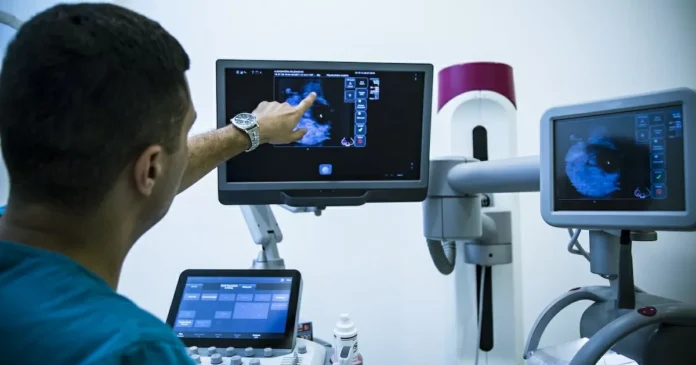The fight against cancer has been a long and arduous one, but with advancements in technology, we are now seeing rays of hope in the form of Artificial Intelligence. AI, with its ability to process vast amounts of data and make accurate predictions, has caught the attention of medical researchers worldwide. In this light, the announcement of a partnership to research how AI can help predict cancer progression is welcomed news for both patients and medical professionals alike.
The partnership brings together two key players in the field of healthcare – the renowned cancer research center, The Cancer Institute (TCI), and the leading AI technology company, AdvancedTech. This collaboration aims to harness the power of AI to predict the progression of cancer and potentially improve patient outcomes.
According to recent statistics by the World Health Organization, cancer is the second leading cause of death globally, with an estimated 9.6 million deaths in 2018 alone. The ability to accurately predict the progression of cancer could significantly impact treatment and ultimately save lives. This is where AI comes into play.
AI technology has proven to be incredibly effective in various fields, from self-driving cars to virtual assistants. Its potential in the field of healthcare is equally vast. AI can analyze vast amounts of data, including medical records, genetic information, lab tests, and more, to identify patterns and make predictions. This vast information can provide invaluable insights into cancer progression, leading to better treatment plans and more personalized care.
The partnership aims to collect and analyze vast amounts of data from cancer patients to build predictive models. The team at TCI will contribute their expertise in cancer research while AdvancedTech will provide their cutting-edge AI technology. With AdvancedTech’s experience in developing AI solutions for the healthcare industry, the partnership is expected to yield innovative and effective models to predict cancer progression.
One of the key benefits of using AI technology is its ability to continuously learn and improve. As more data is collected and analyzed, the AI models will become more accurate and efficient in predicting cancer progression. This could lead to earlier detection of cancer and more successful treatment outcomes.
Moreover, AI technology can also assist doctors in making more informed decisions about treatment plans. By identifying patterns and predicting which treatments would be most effective for a particular patient, doctors can tailor treatment to each individual, leading to more successful outcomes.
But the benefits of this partnership go beyond just predicting cancer progression. The collaboration also aims to explore how AI can be used in cancer research and patient care. This could include identifying new biomarkers for cancer diagnosis, predicting side effects of treatments, and developing new treatment options.
The partnership between TCI and AdvancedTech is a significant step in the fight against cancer. It offers hope to millions of people diagnosed with cancer every year. With AI technology by our side, we are one step closer to predicting cancer progression accurately and revolutionizing cancer treatment.
The potential of AI in the healthcare industry is immense, and this partnership is just the beginning. By pushing the boundaries of technology and collaborating with experts in the field, we can continue to make significant strides in the fight against cancer.
In conclusion, the partnership between TCI and AdvancedTech to research how AI can help predict cancer progression is a remarkable development in the field of healthcare. With its potential to improve patient outcomes, this collaboration brings renewed hope to patients and medical professionals worldwide. As we continue to harness the power of AI, we are one step closer to conquering cancer and improving the lives of millions of people around the world.

